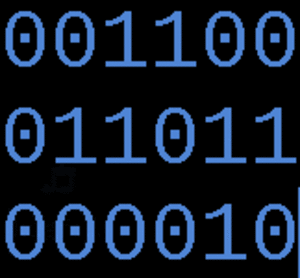Thursday, October 13, 2011, 11:53
Posted by Administrator
Computing has brought with it the ability to copy and distribute information at a speed much higher than ever seen before in history and this is presenting us with many legal and ethical challenges. We find ourselves in an age where sharing an artist's entire life's work can take merely a single twitch of a finger. This post addresses just a few of the main ethical distinctions on copying and piracy that are not entirely clear prima fasciae.Posted by Administrator
Piracy vs. Copying:
The media often addresses digital copying and piracy as if they refer to the same concepts but this is clearly not the case. Piracy refers to copyright infringement where an unauthorized copy of a creative work is created. Copying someone else's work can often be authorized. One example of authorized copying is the right people have to make one backup copy of software they bought for their own personal archival purposes. Another example of authorized copying is when the copying falls under fair use as described in 17 U.S.C. § 107. What ultimately determines fair use is often up to the courts to decide upon.
Copying vs. Theft:
People who hold copyrights often incorrectly equate copying with theft but these are distinctly different concepts. The difference lies in the fact that theft takes away a product that could potentially be sold. Copying something leaves the original product intact and does not remove it from any marketplace. Many studies have found that the same people who copy and share the most content are also the biggest financial contributors to this same material that they enjoy.
Constructive Solution:
People will naturally tend toward the best solution available for accessing and enjoying the content that they want to consume. The best way for copyright holders and artists to ensure that their products remain financially viable is for them to embrace new business models that utilize the best content distribution channels that are currently available. Online movie and music streaming services such as Netflix and Spotify have already demonstrated that people are willing to spend money when a legitimate service is providing them with the content that they want more effectively and efficiently than through any other means. Change can be hard, but in the arena of piracy and copying only a drastic and proactive paradigm shift on content delivery models will be able properly address the profitability concerns that copyright holders are currently faced with.
A final thought:
" When public libraries were introduced in Europe 150 years ago, the
book publishers were very much opposed to this. The argument they used
was the same one that is being used today in the file sharing debate:
If people could get access to books for free, authors would not be
able to make a living, and no new books would be written. " - Christian Engstrom
